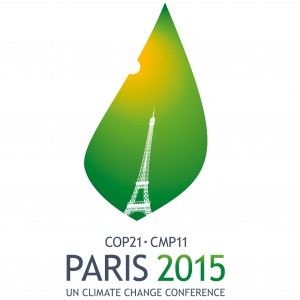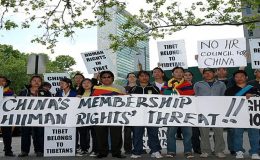For Immediate Release: 8 December 2015
 China’s failed environment policies exacerbate human rights abuses of Tibetans, Uyghurs, Southern Mongolians and Han Chinese
China’s failed environment policies exacerbate human rights abuses of Tibetans, Uyghurs, Southern Mongolians and Han Chinese
Paris COP21 agreement must include strong language to enshrine the protection of human rights
[PARIS] The civil and political human rights abuses perpetrated by China on its citizens and on the people of occupied Tibet, East Turkestan and Southern Mongolia are well documented, but the COP21 negotiations taking place in Paris over the last ten days provide an opportunity to shine a spotlight on the major human rights implications of climate change on vulnerable communities, and illustrate how China’s failed environmental policies are threatening the very existence of traditional culture and livelihoods.
Tibetans in Tibet are on the frontline of a climate crisis with the temperature of the plateau rising twice as fast as the rest of the world. Over 2 million of Tibet’s nomads, the traditional eco-stewards of Tibet for over 8,000 years, have been removed from their home on the grasslands on grounds of “enviro protection”, creating a human rights crisis that is the largest forced removal of people outside a war zone. [1] In Southern Mongolia too, China’s policy of “ecological migration”involves the forced eviction of hundreds of thousands of Mongolian herder families from their ancestral lands and relocation to agricultural and urban areas populated predominantly by Han Chinese. [2]
“There is no doubt that climate change is a human rights issue. The rapid increase in climate change has had a disproportionate effect on not our our people, but the world’s most disadvantaged at large” said Golog Jigme, a Tibetan recently arrived in exile. ”Tibet provides water to over 1 billion people but China’s plans to build hundreds of large dams and water diversion projects across the plateau are putting the security of 10 countries at serious risk.”
“China’s failed policies, for those under illegal occupation and marginalised, have done nothing to protect the human rights of local people at the frontline of the climate change crisis.” said Togochog Engabhatu from Southern Mongolian Human Rights Center.
“Climate change is one of the most defining challenges of our time and it is clear that its most harmful effects will be felt by the most vulnerable among us” said Dolkun Isa of World Uyghur Congress. “It is therefore vital that traditional and “indigenous” knowledge is part of global efforts to find solutions, and that local people are provided a platform to effectively participate and to shape their own future in the process.”
Millions of people living under China’s rule have been displaced amid the escalation of unregulated mining projects and the mass building of mega-dams. Regularly approved without local community participation, these projects have brought devastating environmental impacts including the displacement of tens of millions of people, flooding, and water security problems.
Yang Jianli, President of Initiatives for China, said “ It is only with the full participation of ordinary citizens affected by climate change, with full rights to freely express their concerns, that will we be able to ensure that the solutions needed are met.”
In March 2015 two anti-smog campaigners were arrested for holding an anti-pollution protest in Xi’an, the capital of Shaanxi province. Feng Honglian and Zhang Hui were detained after they called the government “to control [the] smog”. This came one day after China’s environment minister promised to “guarantee the public’s rights to supervise the fight against air pollution”, [3] and just a few months before China announced new plans to control the activities of NGOs – domestic as well as foreign – in a move that threatens the development of civil society. [4]
The current draft text still outlines a binding commitment to respect human rights in relation to actions related to climate change, but we know that some countries, including Norway and the US, are attempting to take these references out of the agreed text.
Just days before International Human Rights Day 2015, we urge the world’s governments, working to reach an agreement in Paris, not to sacrifice language that enshrines the protection of human rights, or recognizes the importance of traditional and indigenous knowledge of land management. Specifically we call on governments to:
– Ensure that human rights are at the core of climate change governance and are firmly anchored in the human rights framework of the COP21 agreement and any further agreements.
– Secure an agreement at the COP21 Summit that binds governments, in all climate change related actions, to respect, protect, promote, and fulfil human rights for all, and address the human consequences of climate change.
– End –
Contacts:
Yang Jianli, Initiatives for China [Chinese, English] +1 (857) 472-9039
Golog Jigme, Tibetan Human Rights Defender and former Political Prisoner [Tibetan and English/German/French with translation] +41 76 533 45 86
Togochog Enghebatu, Southern Mongolian Human Rights Information Center [English, Mongolian] +1 (917) 698-4367
Dolkun Isa, World Uyghur Congress [English, German, Uyghur] +49 89 54321999
Mandie McKeown, International Tibet Network [English] +44 (0)7748158618
Editors Notes:
1. Human Rights Watch, 2013, ‘They say we should be grateful: Mass Rehousing and Relocation Programs in Tibetan Areas of China’, https://www.hrw.org/report/2013/06/27/they-say-we-should-be-grateful/mass-rehousing-and-relocation-programs-tibetan
2. Togochog Enghebatu, 2005, ‘Ecological Migration and Human Rights’, http://www.hrichina.org/sites/default/files/PDFs/CRF.4.2006/CRF-2006-4_Ecological.pdf
3. The Telegraph, March 2015, ‘China arrests anti-smog campaigners’, http://www.telegraph.co.uk/news/worldnews/asia/china/11458961/China-arrests-anti-smog-campaigners.html
4. The Wall Street Journal, June 2015, ‘China Asserts More Control Over Foreign and Domestic NGOs’, http://blogs.wsj.com/chinarealtime/2015/06/16/china-asserts-more-control-over-foreign-and-domestic-ngos/




